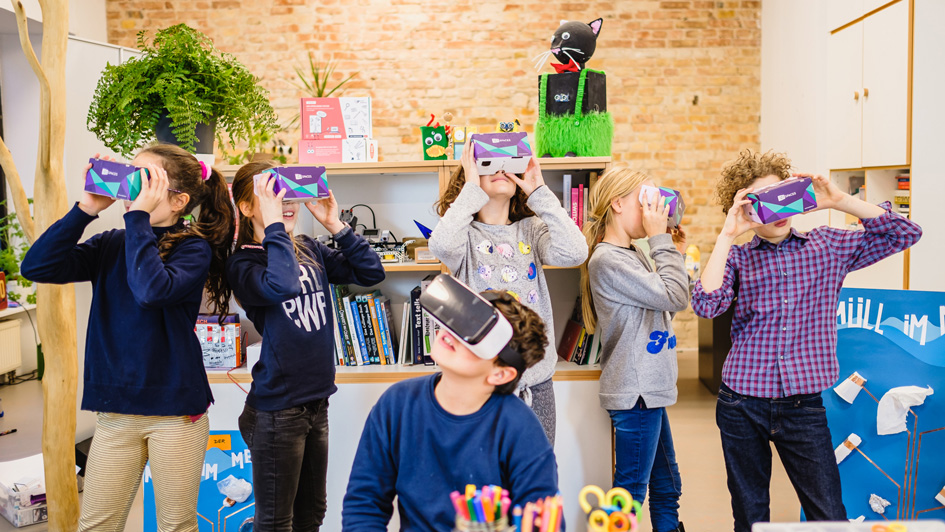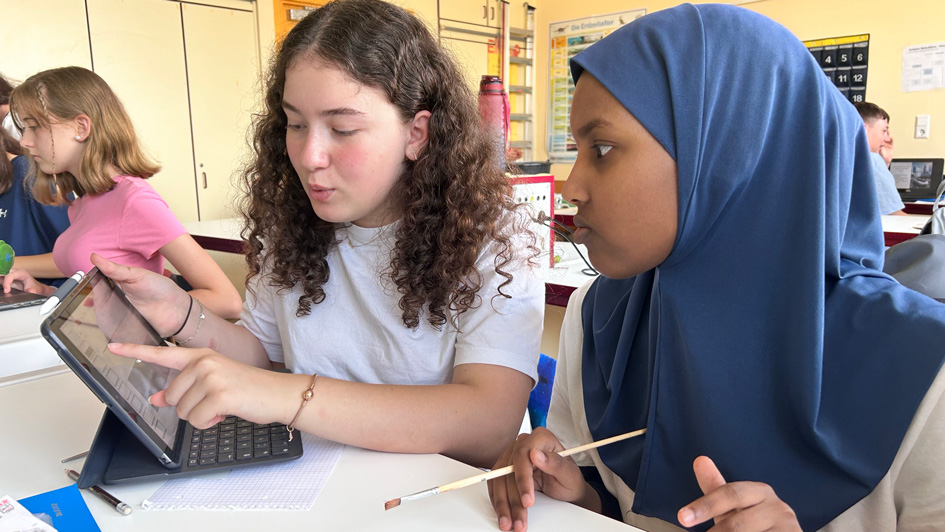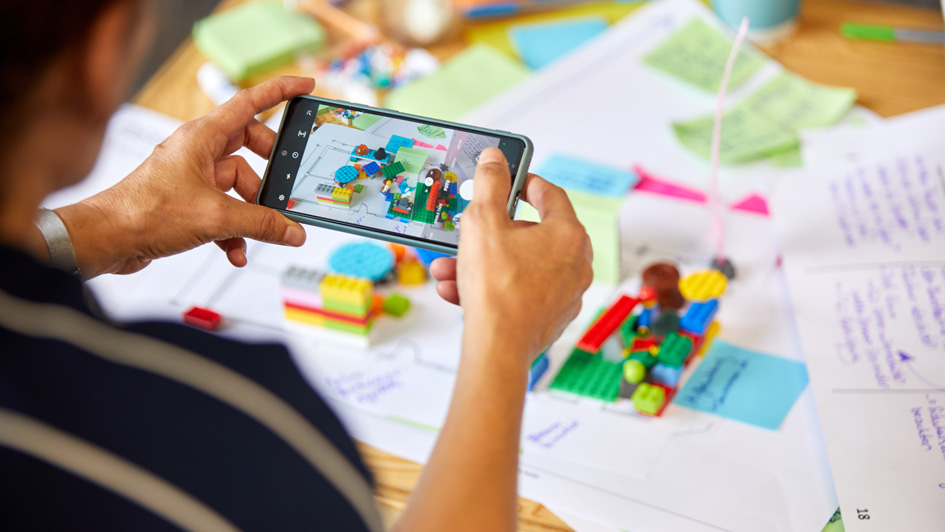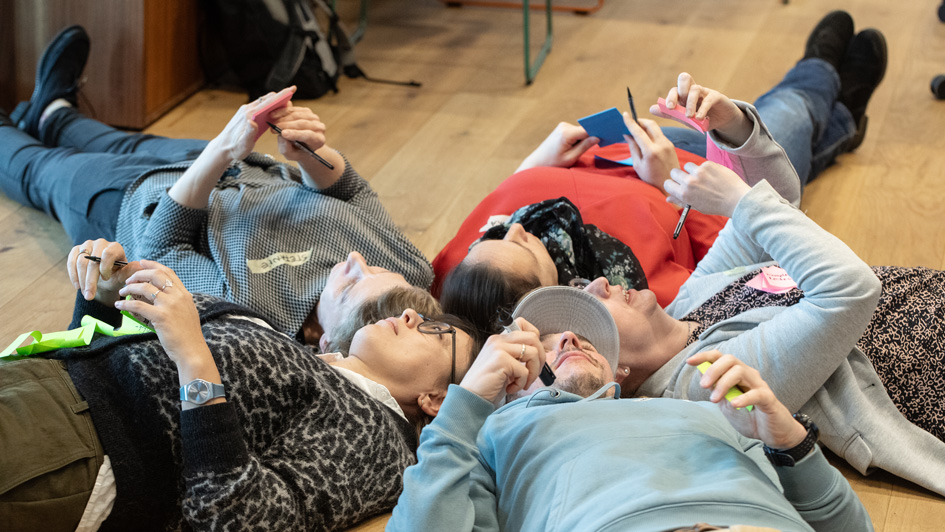Gateway to nurturing future competencies for teachers and students: STEAM Hub Siemensstadt Square, Berlin

Independent exploration ignites the spirit of self-reliance and inspires students to make responsible decisions.
© Young Tüftler*innen
Learning in times marred by climate, geopolitical, and economic uncertainties presents multifold challenges, particularly for school students. The International Education Day on Jan 24 focuses on “AI and education: Preserving human agency in a world of automation”, highlighting the power of education to equip individuals and communities to understand and influence technological advancement. Siemens Stiftung’s purpose with its future-shaping and inclusive STEM (science, technology, engineering and mathematics) approach is completely aligned with this theme. At its STEAM Hub Siemensstadt Square in Berlin, the internationally operative foundation is preparing our next generation with skills for tomorrow. By bringing local and international expertise, Siemens Stiftung is piloting an innovative learning environment at the STEAM Hub to strengthen teaching and learning fit for our rapidly transforming realities.
“Quality education is the basis of democracy, the biggest social and economic leveler. Instead of just imparting specialist knowledge, our focus is on strengthening learners’ skills such as teamwork, creativity and solution-oriented thinking to excel in the face of societal transformation characterized by digitalization and climate change. At the Siemens Stiftungs’ STEAM Hub, we are addressing some of the critical deficits such as the lack of professional development opportunities for teachers or education equity: By inviting students from all backgrounds and providing them access to a modern learning space along with advanced training sessions for teachers to hone their skills in future-oriented teaching methods”, says Dr. Nina Smidt, CEO and Spokesperson of the Board of Siemens Stiftung.
Located at Siemensstadt Square, the STEAM Hub is at the crossroads of transformation from a closed industrial site into a livable and sustainable urban quarter of tomorrow. In the new city district, people will live, work, learn and research at the site, where they will test and develop future-shaping technologies – connecting the digital world with the real. The evolving landscape provides an ideal setting for students to explore sustainable development in an urban context and the culture of digitality. In a participatory process with local partners, institutions, and academics, Siemens Stiftung is co-creating forward-looking educational practices by combining its interdisciplinary STEM approach with 21st-century skills: Creativity, critical thinking, collaboration and communication.

The STEAM Hub offers 100 square meters of user-centric and inclusive learning space where teachers and students explore, experiment and devise prototypes using cutting technologies. Learners participate in a wide range of training, activities and workshops regularly: From advanced training for schoolteachers in applying Design Thinking methodology into STEM lessons, integrating mental health knowledge into the classrooms, to Make@thons for teenagers to develop creative problem-solving acumen. From the beginning of 2025 a new “TüftelLab” will open in the STEAM Hub that inculcates a “Maker Education” approach by making digital tools tangible for young students.

Dr. Nina Smidt, CEO and Spokesperson of the Board of Directors, Siemens Stiftung
“Technological paradigm shifts are elevating societies to a higher level of prosperity. Education needs to be redesigned accordingly. That was the case during the industrial revolution in the 19th century. To realize the great opportunities of digitalization today, people need the right skills. That’s why Siemens Stiftung’s STEAM Hub Siemensstadt Square is a place of learning where teachers and students can acquire the skills, they need for the world of tomorrow.”
In the last three years, over 340 teachers and educators from across Germany have joined the various training courses. More than 600 students have participated in the STEM Make@thons at the STEAM Hub and neighboring schools.
The introduction of sustainability principles and the spirit of independent exploration ignite an attitude of self-reliance and inspire students to become responsible citizens. Who, in turn, contribute in their unique ways to building more sustainable and resilient democratic societies.

Innovative educational offerings in the STEAM Hub
Make@thon
Implemented by the University of Osnabrück and funded by Siemens Stiftung, at Make@thons students from grades 7 to 13 address important topics of our future such as reducing plastic waste, sustainable nutrition and e-mobility. Accompanied by mentors, the participants work independently to find solutions that are scientific and creative. Following a hybrid model, the Make@thons take place at the STEAM Hub and across schools in the neighboring district.
TüftelLab
Through a “Maker Education” approach, the TüftelLab offers teachers and students in grades 4 to 10 a hands-on and action-oriented introduction to the digital world. Instead of being passive consumers, participants become creators and developers of their own ideas. They learn to think creatively and in a solution-oriented way by developing and programming prototypes themselves and experimenting with innovative technologies such as robotics or virtual reality. The concept is implemented in collaboration with the Junge Tüflter.
Design Thinking in STEM
The Design Thinking approach encourages students to approach problems through empathy and from the perspective of the user. Ideas and solutions are visualized and made tangible as prototypes as early as possible in interdisciplinary teamwork. This allows them to be tested and evaluated directly. Siemens Stiftung is working with the Hasso Plattner School of Design Thinking to implement the innovative teaching and learning method Design Thinking in STEM lessons.
MINT-EC thematic cluster Health
Since 2024, in cooperation with the MINT-EC, the STEAM Hub has served as a creative meeting place for the MINT EC health cluster, which includes 23 teachers from 19 schools. Their common goal is to integrate health knowledge into the classroom across subjects and to develop innovative educational practices to strengthen knowledge of teachers and students on health.
Press material
Press contact
Communications / Head of Media Relations
Jagori Dhar


